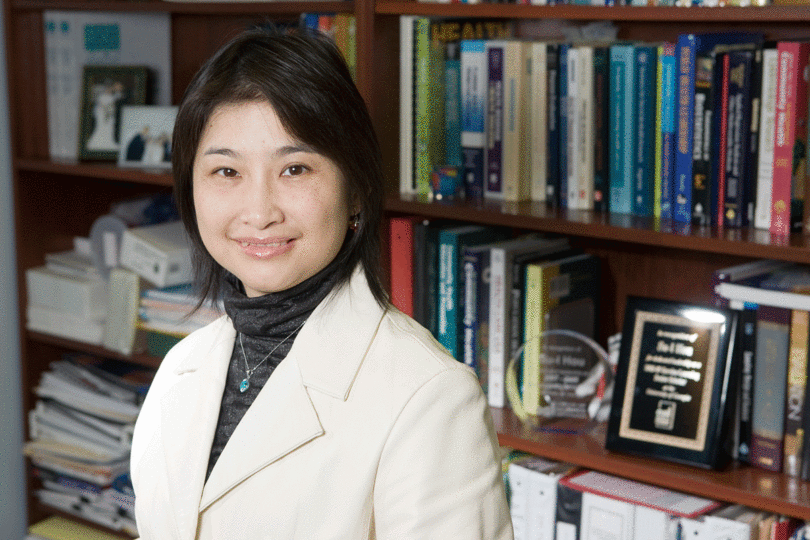Decades of research have detailed the benefits of engaging students in service-learning projects and heralded a national movement towards the use of this strategy of instruction at every educational level.
“But there are still a lot of barriers for faculty interested in using service-learning in their instruction and limited information about faculty involvement and use of the service-learning approach,” said Su-I Hou, an associate professor of health promotion and behavior at the College of Public Health.
Web-based survey
To fill in this knowledge gap, Hou developed and validated a Web-based faculty service-learning survey aimed at measuring faculty perceptions of service-learning’s benefits and barriers and invited 1,200 faculty members from across campus to share their beliefs regarding the pedagogy.
The results of the study were recently published in the spring 2010 issue of the Michigan Journal of Community Service Learning.
Of the 449 UGA faculty who participated in the survey, only 102 had taught at least one course with a service-learning component. Members of this group of service-learning experienced faculty were more likely to be female; more likely to be at the rank of associate professor; less likely to be from a college of the arts and sciences, pharmacy or veterinary medicine; and more likely to be from an education or social science-related college.
Institutional barriers
“We found that overall faculty with service-learning experience perceived higher benefits and fewer barriers for service-learning pedagogy,” said Hou. “What was interesting was that regardless of whether faculty had service-learning experience or not, their perceived levels of institutional barriers were equally high.
“It would be very interesting to learn more about why people are still engaged in service-learning despite the fact they still perceive similarly high institutional barriers,” she added.
The UGA survey was the first official test of the Web-based Faculty Service-Learning Beliefs Inventory (wFSLBI) developed for the study, according to Hou.
Two corresponding levels of perceived benefits were developed, the perceived benefits of service-learning at classroom and community levels and perceived barriers to classroom and institutional levels. Study results showed substantial evidence for reliabilities and validities of the wFSLBI, among both service-learning faculty and those without prior service-learning experience.
“The unique contribution of the survey instrument is that we can measure faculty attitudes regardless of whether they have service-learning experience or not,” she said.
Wording each of the questions to fit the experience level of the participant creates a corresponding scale that measures the same concept or perception regardless of their stage of service-learning involvement, Hou said.
Theoretical framework
The guiding theoretical framework Hou used to develop the survey is a behavior change model called the Transtheoretical Model. According to TTM, behavior change is a gradual process rather than an all-or-none event. Individuals weigh pros and cons before adopting a new behavior.
“This model was originally applied to smoking cessation behavior, but has since been widely adapted to a variety of health behaviors, including screening, physical behavior and healthy eating,” said Hou.
She has used the theory in her research on cancer screening education and promotion and HIV prevention.
“From my knowledge, this is the first study to apply TTM to service-learning research. I’m passionate about TTM and interested in seeing how TTM might help advance our knowledge in the service-learning field,” she said.
The study was supported by the Office of Service-Learning through its Senior Scholars program, a year-long faculty leadership program that provides opportunities for selected faculty to work on targeted initiatives to enhance and expand service-learning on the UGA campus and abroad.
Useful information for OSL
Throughout the project, Hou actively sought feedback from OSL leadership, the 18 faculty members of the Service-Learning Curriculum Committee and the Service-Learning Interest Group’s campus-wide network of faculty, students and community partners. The Office of Institutional Research assisted in the sampling.
“A major purpose of this study was to provide useful information to the Office of Service-Learning to help them plan and direct future efforts to support faculty on campus and to encourage more research on service-learning,” said Hou. “We do know there are a lot of barriers for faculty service-learning involvement, but UGA is actively trying to address them.”







